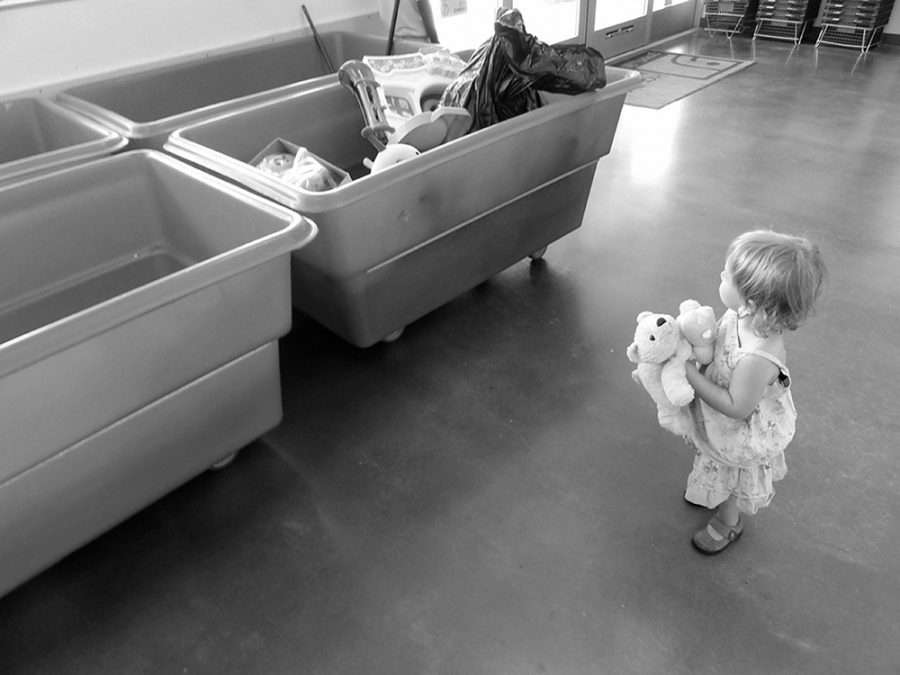Scientists must acknowledge morality’s multiple dimensions
Lewis Waha responds to articles concluding that religious children are less moral than secular ones.
November 11, 2015
“Religion Makes Children More Selfish, Say Scientists,” reads a provocative headline that winded through social media feeds recently. Several news articles in fact have highlighted a study of children raised in Christian, Muslim and secular homes. One even asks, “Why are religious people less moral?”
Morality and Reality
Initially, some will suspect the Christian homes identified in the study are not really Christian. They suppose Christians and other religious people must be more moral than their secular peers. Whether that is true depends on what it means to be moral. Possibly, the study results are sound, but the reporting is misleading.
Readers must remember science cannot determine everything about reality. It cannot tell us how we should be moral. That remains in the domain of ethics. In the study, “altruism” merely describes observed behavior, without reference to a subject’s actual intentions. When it comes to morality, intentions make all the difference.
Virtue and Vice
Take this example: Scrooge walks past an orphanage, and while trying to avoid a volunteer collecting donations, he slips on a cobblestone. The change he was gripping in hand flies into the collection jar. The volunteer thanks him vigorously for his generosity, but Scrooge clearly looks dismayed. This “generous” act is not what it appears to be.
Morality has another essential ingredient. Consider the ethical theory of virtue given by Aristotle. It is possible to have an excess or a deficit of what would otherwise be a good disposition. This is the opposite of virtue — vice. For patience, gentleness or generosity, a virtuous person needs to have the right amount at the right time. There can be such a thing then as too much generosity. Books like “When Helping Hurts” and “The Tragedy of American Compassion” draw on this truth.
What is Right?
So when the study reports children from secular homes gave 4.1 stickers on average to a hypothetical child in need, while Christians only gave 3.3, it means nothing in ethical terms if we do not know what the “right” amount of stickers to give is. Likewise, when a Muslim child assigns relatively “harsher” punishment to a wrongdoer than her peers do, we cannot conclude she is “less moral.” For all we know, the secular kids erred morally by parroting their parents’ wasteful extravagance and their indifference toward justice.
Like other research, this altruism study gives researchers and journalists a platform to broadcast subjective messages while ignoring alternative interpretations of the data.
A Need for the Comprehensive
Multiple stories chide that irreligious people can be moral too. That is old news. An article in Science Magazine by Warren Cornwall suggests religious people are susceptible to “moral licensing,” where someone who thinks himself upright unconsciously permits himself to behave badly. But this applies equally to the irreligious.
One Forbes contributor clearly editorializes when he reports that Jean Decety expects “evangelical Christians who ignore facts” will deny his study rather than be swayed by it. Rather, independent thinkers might accept Decety’s results but offer more comprehensive interpretations.
The Importance of Intentionality
This altruism study and its consequent press reports treat morality in a misleading, one-dimensional way. By equating simple, quantitative measures of behavior with morality, they fail to address prerequisites, like intentionality and a virtue ethics framework, that it would also take to have actual moral behavior. Rather than pad discussion with opportunistic shots at disfavored groups, scientists and science reporters should minimize divisive commentary and present a fuller range of study implications.







